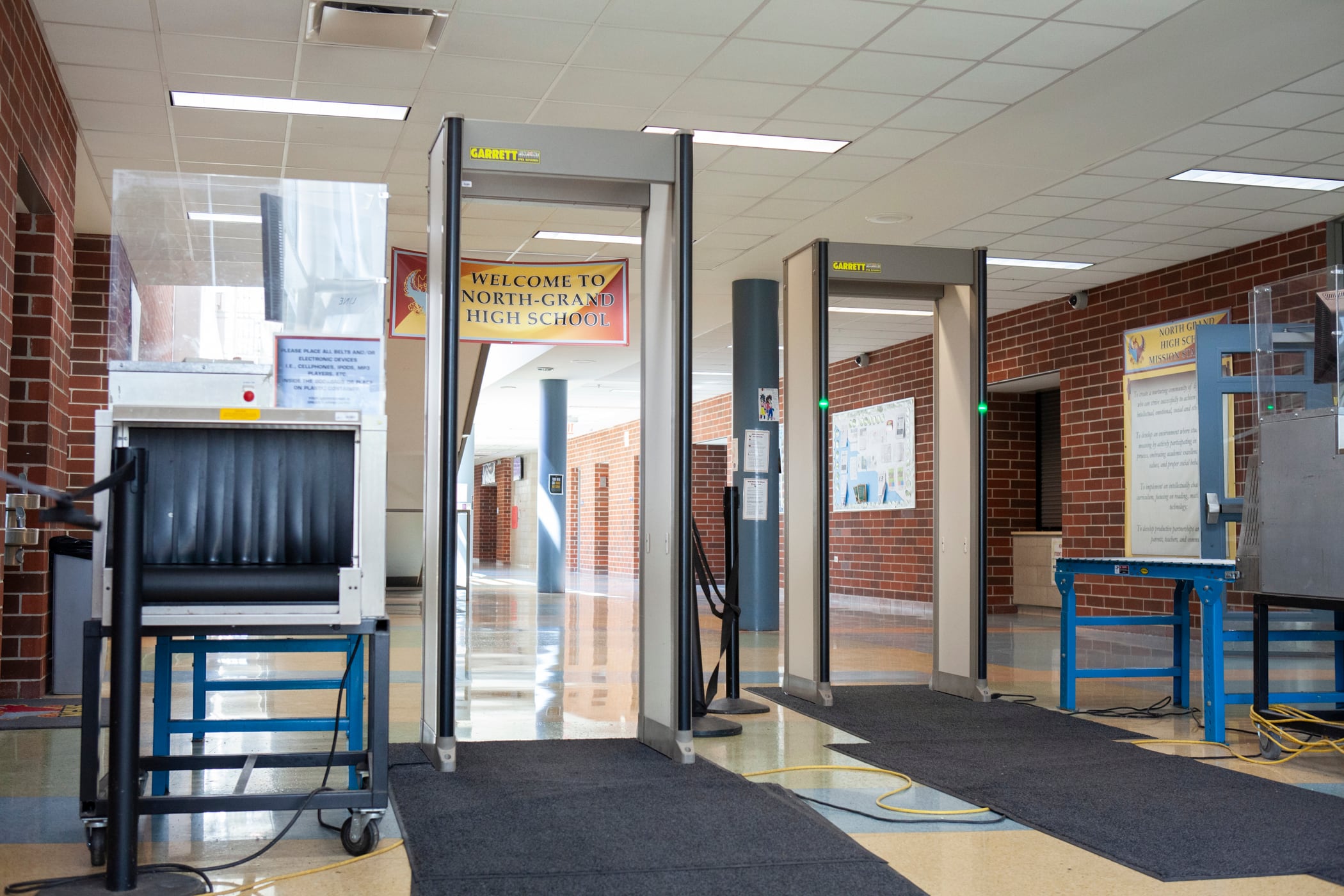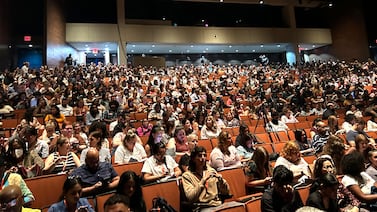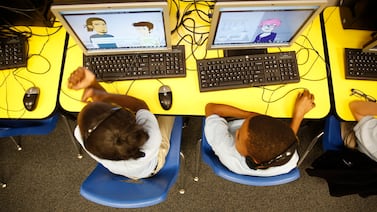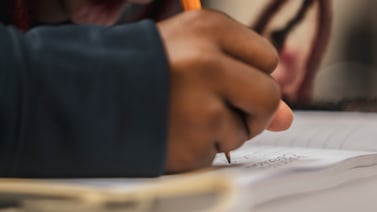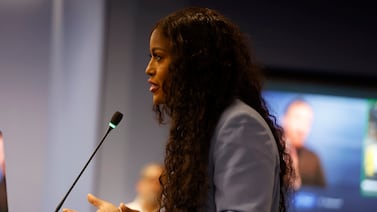Spurred by the Minneapolis Public Schools ending its contract with the city’s police department, the push to remove police officers from Chicago schools is gaining momentum.
The Chicago Teachers Union and a coalition of community groups have been circulating a petition to remove police from schools. Parents, teachers and even school central office employees have told Chalkbeat they flooded the Chicago Police Department with calls for the same, via one of the department’s online public comment spaces.
Mayor Lori Lightfoot has promised new police reforms, including increased training and a shift in recruitment, sometimes in the next 90 days. Asked whether she would consider rethinking the school district’s relationship with police as part of the broader slate of reforms, City Hall did not provide an immediate comment.
Organizers planning a protest Thursday outside Lincoln Park High School on the North Side will call for the Chicago Public Schools to redirect money spent on police to nurses and counselors instead.
Chicago Public Schools spends $33 million annually to place city police on campuses. The school district also hires and trains its own force of security guards.
While many Chicago educators have been vocally against police in schools, others say they have had good experiences with their campus police officers. Nationally, the share of schools with police officers in schools has spiked in recent years.
Teachers say they are having conversations with students about rethinking the role of school police, spurred in part by broader discussions about race and police brutality. Computer science teacher Charity Freeman surveyed her students at Lane Tech College Prep this week on whether they associated police with protection or anxiety.
Most of her students said the police made them anxious — an answer that Freeman said spurred her students to reconsider their school’s relationship with the Chicago Police Department officers who usually patrol the school’s halls.
“It was a bit heartbreaking,” Freeman, who teaches at one of Chicago’s North Side selective enrollment high schools, said.
In a statement, Chicago schools security chief Jadine Chou wrote that the district is committed to discussing the role of school resource officers, as police on campus are known. “Last summer, the district empowered Local School Councils to determine if SROs would be assigned to their schools because we firmly believe that elected local leaders are best suited to make these decisions for their own communities,” Chou wrote.
More than a week after a white Minneapolis police officer killed an unarmed black man and sparked a nationwide protest, communities across the nation are discussing the practice of assigning police to campuses.
Advocates and community groups in Chicago have sought to remove police from schools for years while some principals have defended the practice as providing needed security on campuses. Now the calls for reform are part of a broader national movement.
Meyiya Coleman, a youth organizer with youth group VOYCE, said the decision in Minneapolis had created the perfect moment for organizers to push for their demands. Much as Chicago took inspiration from national protests against police, she hopes the school district will end its police contract. “Now is the time,” Coleman said.
A Denver school board member has called for his district to remove police, and a petition for the same is circling among school communities in Seattle. The Advancement Project, a national education-focused civil rights group, called for all school districts to cut ties with police.
Chicago is in the first year of a broad reform of school police, spurred by federal oversight of the city’s police department that followed an alleged cover-up of the fatal shooting of Chicago teenager Laquan McDonald in 2014.
For the first time in over a decade, written expectations spell out how Chicago police are supposed to behave in schools, but the new agreement is costly.
In May, the police department and school system sought public comments on the new rules that govern how officers engage with students who are accused of criminal activity and how officers question students. The deadline for the comments coincided with the Minneapolis school board vote to kick out police, and Chicago advocates used the moment to amplify their calls to end school policing.
Some of the comments submitted, shared with Chalkbeat, show a range of critical voices, including those who argue police make students more anxious and disrupt learning, and others who have seen school officers threaten special education students with arrest.
Some educators say the changes made to how police patrol schools this year were positive. Kat Hindmand, the director of climate and culture at Taft High School in Norwood Park, reported positive experiences with officers in her school, particularly those who understand child and adolescent development.
“It is also critical that officers fully understand, and buy into, the use of restorative discipline practices in Chicago Public Schools,” Hindmand said.
Another educator, Ivy Abid at Lindblom Math and Science Academy in Englewood, said at a previous school where she taught on the North Side, the presence of officers and lack of structured discipline meant that students were arrested frequently for incidents that would merit a suspension if the officers had not been involved.
At another school, the officer “did basically nothing the whole year,” she said, “because there was never an incident that ever merited their attention.”
Kevin Moore, a social studies teacher at George Washington High School, called for Chicago Public Schools to terminate its contract with the police department.
“The sight of a police officer in a school building heightens anxiety among students and more importantly does nothing to add to the academic enrichment of our students,” he said.

